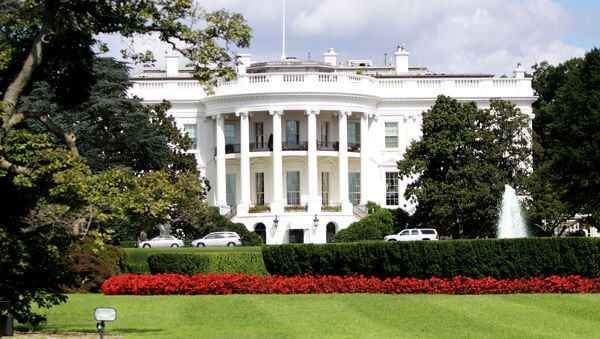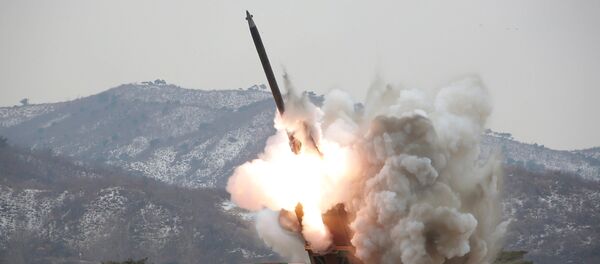WASHINGTON (Sputnik) — The latest expansion of US sanctions on North Korea are certain to fail and wreck hopes for greater openness from Pyongyang just as past efforts did, retired US Ambassador Chas Freeman, a leading US expert on Northeast Asia, told Sputnik on Friday.
"We are doubling down on a failed policy," Freeman, a former US assistant secretary of defense for international security affairs, said. "Severe sanctions have been applied to North Korea for decades. Their only effects have been to deepen regime paranoia, retard market reforms and stiffen resolve."
On Wednesday, the Obama administration announced a new round of sanctions targeting North Korea’s trade in metal, graphite, coal and software, and revenue sent by workers abroad. The sanctions block property and interests in property of the North Korean government as well as of 20 of the country’s vessels. Moreover, the measures prohibit exports or reexports of goods, services and technology to North Korea and new investments by US persons regardless of where they are located.
Freeman charged the Obama administration only stepped up the sanctions because it could n think of no other way to react against North Korea.
The Obama administration would not prevent necessary humanitarian aid from still flowing to North Korea to alleviate the sufferings of its people, but the Pyongyang regime knew it could count on that and continue to defy the sanctions policies, Freeman pointed out.
"Sanctions against North Korea cannot be merciless… The United States and the international community, including China, will not allow the North Korean people to starve as a result of the incompetence and intransigence of their government. So food and other aid will continue to flow," he said.
"This, of course, frees up funds the regime would otherwise have had to spend to alleviate the suffering of the North Korean people and allows it to spend more money on whatever priorities it has, including nuclear weapons and missile delivery systems," he concluded.
Chas Freeman, Jr. is co-chair of the US- China Policy Foundation in Washington, DC. Freeman was the translator for US President Richard Nixon on his first visit to China to meet Chairman Mao Zedong in 1972.


